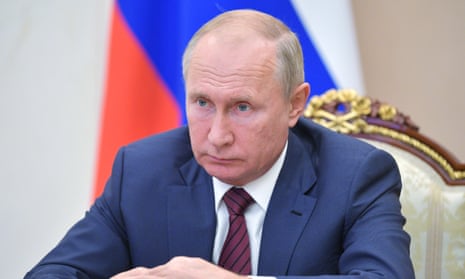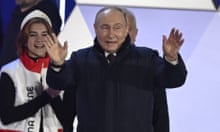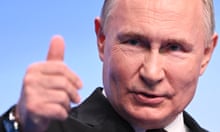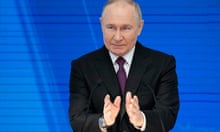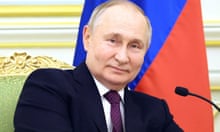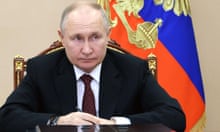Russian lawmakers have introduced a bill to parliament that would give Vladimir Putin lifetime immunity from prosecution if and when he decides to leave office.
The draft bill would give a former president immunity from criminal prosecution for any offences committed during his lifetime. A supermajority of lawmakers would be required to revoke the protections. Currently, ex-presidents are protected for actions taken only while they were in office.
It is the second bill this week that provides special provisions for former presidents, prompting talk of whether Putin, 68, might be preparing for retirement.
On Saturday he sponsored legislation that would entitle a former president to a lifetime seat as a senator in Russia’s Federation Council, a position that also comes with immunity from prosecution.
The bills follow Russia’s adoption of constitutional amendments that “reset” Putin’s term limits, allowing him to potentially run twice more for president and remain in office until 2036, when he would be 84. He has ruled the country, mostly as president, since 2000.
Political analysts have differed on their interpretation of Putin’s plans. While he has cleared a path to rule for years, it is possible he simply did not want to be seen as a lame duck as he would have been forced out by term limits in 2024 – he was first elected president in 2000, then returned to the presidency in 2012. He has largely worked remotely since the outbreak of the pandemic, holding meetings from a windowless bunker and rarely appearing in public.
Presidential immunity played a prominent role in Putin’s rise to power. Among Putin’s first acts as president was to issue a decree granting immunity to the former president Boris Yeltsin from prosecution, interrogations and searches of his property.
The decision was interpreted by some as an incentive for Yeltsin – who was then ensnared in a Swiss investigation involving credit cards issued to his family – to step down and choose Putin as a successor. Yeltsin denied in his memoirs that there was any deal with Putin. A law on presidential immunity was adopted by Russia’s parliament in 2001.
The only other living Russian to whom Putin’s new bill would currently apply is Dmitry Medvedev, who served as president from 2008 to 2012 and then stepped aside to allow Putin to return.
The bill will need to pass three readings in the lower house, then the upper house, before being signed by Putin to enter into law.
